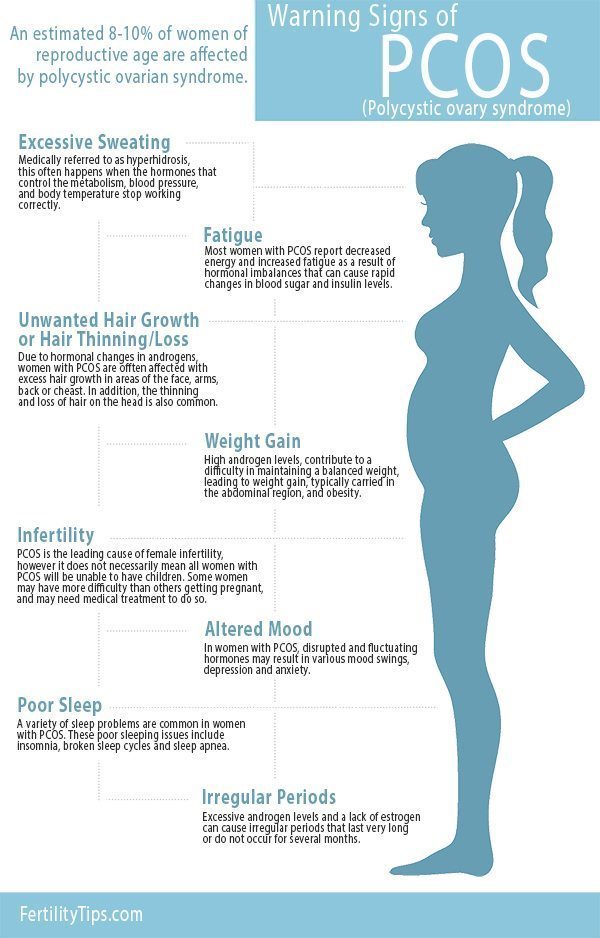What is Polycystic Ovary Syndrome?
Polycystic ovary syndrome (PCOS), is a type of hormonal disorder causing enlarged ovaries with cyst formation on the outer layer. The symptom is caused due to raised male hormone (androgen) in the woman’s body. PCOS causes a problem with women’s menstrual cycle, fertility, and appearance. PCOS is the most common disorder among women between age group 18-44. It has no definite cure, and only weight management and exercise can bring about noticeable changes.
Hormonal imbalance is another factor contributing to PCOS. This indirectly affects development and release of eggs during ovulation cycle. Excess insulin (the hormone which converts sugars into starch) also cause high androgen levels.

Symptoms
Symptoms of PCOS starts right from the stage when women start menstruating. However, the severity may vary leading to irregular menstrual cycles. Due to decreased levels of female hormone, women start developing some male-like characteristics (unwanted hair growth, decreased breast size, change of voice, hair loss, and thinning). Other important symptoms that mark the disease are:
- Acne.
- Unwanted weight gain.
- Pelvic and abdominal pain.
- An episode of unexpected anxiety, depression, and anger.
- Infertility due to lack of ovulation.
Causes
The causes of PCOS are not very clear and understood, but few of the major factors could include:
- Genetics: PCOS runs in families, so anyone who has a family history is at greater risk of being affected.
- Hormonal imbalance: It is another factor contributing to PCOS. Excessive production of a male hormone in will cause changes in the women body leading to PCOS. This indirectly affects development and release of eggs during ovulation cycle.
- Excess insulin(hormone which converts sugars into starch): It also causes high androgen levels
Risks
The main risk factors include:
- High blood pressure, high cholesterol, and lipid profiles.
- Metabolic Syndrome —signs that indicate increased the risk of cardiovascular disease.
- Nonalcoholic steatohepatitis —liver inflammation caused by fat accumulation in the liver.
- Infertility.
- Sleep apnea (state when a person stops breathing periodically during sleep).
- Depression and anxiety.
- Abnormal uterine/menstrual bleeding.
- Cancer of the uterine lining (endometrial cancer).
- Gestational diabetes or pregnancy-induced high blood pressure.
- Breast cancer.

Prevention
The disease cannot be completely prevented, but early treatment and diagnosis will help prevent long-term complications such as:
- Diabetes.
- Obesity.
- Metabolic syndrome.
- Infertility.

Post a comment